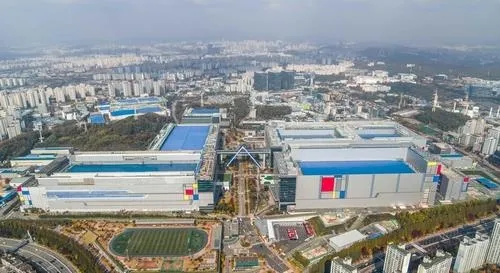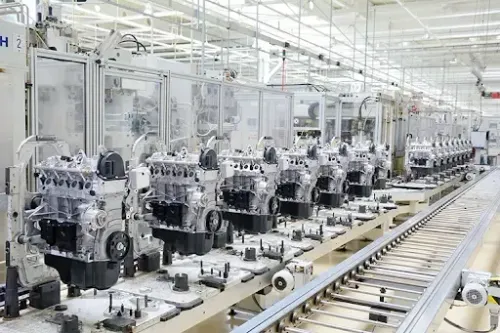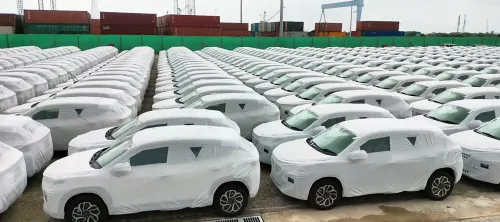Is the US Requiring Samsung and SK Hynix to Obtain Licenses for Chipmaking Tools to China?

Synopsis
Key Takeaways
- Samsung and SK Hynix lose VEU status.
- Licenses required for US chipmaking equipment to China.
- Decision takes effect in 120 days.
- US aims to tighten export controls amid rivalry with China.
- South Korea seeks to mitigate impact on chipmakers.
Washington, Aug 30 (NationPress) The US Commerce Department has unveiled plans to revoke the validated end-user (VEU) status of South Korean technology giants Samsung Electronics and SK Hynix. This significant change mandates these companies to obtain licenses to ship specific US chipmaking equipment to their facilities in China.
The Bureau of Industry and Security, as noted in the Federal Register, will amend the existing VEU authorizations list for China by removing both companies along with Intel Semiconductor Ltd.
The department emphasized that it has no intention of approving licenses for expanding production capacity or upgrading technology at these Chinese plants, as reported by Yonhap news agency.
During the previous Biden administration, Samsung Electronics and SK Hynix were granted VEU status, easing the licensing requirements for them by permitting the shipment of specific US semiconductor equipment to pre-approved sites under a general authorization instead of requiring individual export licenses.
This decision will come into effect 120 days post its official publication on September 2.
In a press release, the Commerce Department stated that the revocation of VEU status is aimed at closing a Biden-era loophole.
Under Secretary of Commerce for Industry and Security, Jeffrey Kessler, remarked, "The Trump Administration is dedicated to eliminating export control loopholes, especially those that disadvantage US companies."
"This decision marks a crucial step in achieving that commitment," he added.
The US has been tightening its export regulations concerning advanced technologies to China amid escalating competition between the two superpowers over technological supremacy, maritime security, and various other issues.
In response, the South Korean government has affirmed its commitment to mitigate the repercussions for local chipmakers.
The Ministry of Trade, Industry and Energy stated that they were informed in advance by the US government about the decision to revoke the VEU status for Samsung and SK Hynix.
"The government has maintained close communication with the US Department of Commerce regarding potential adjustments to the VEU system, underscoring the significance of the smooth operation of our chipmakers' facilities in China for global semiconductor supply chain stability," the ministry stated. "Even with the withdrawal of VEU status, we will persist in collaborating with the US to minimize the impact on Korean companies."










